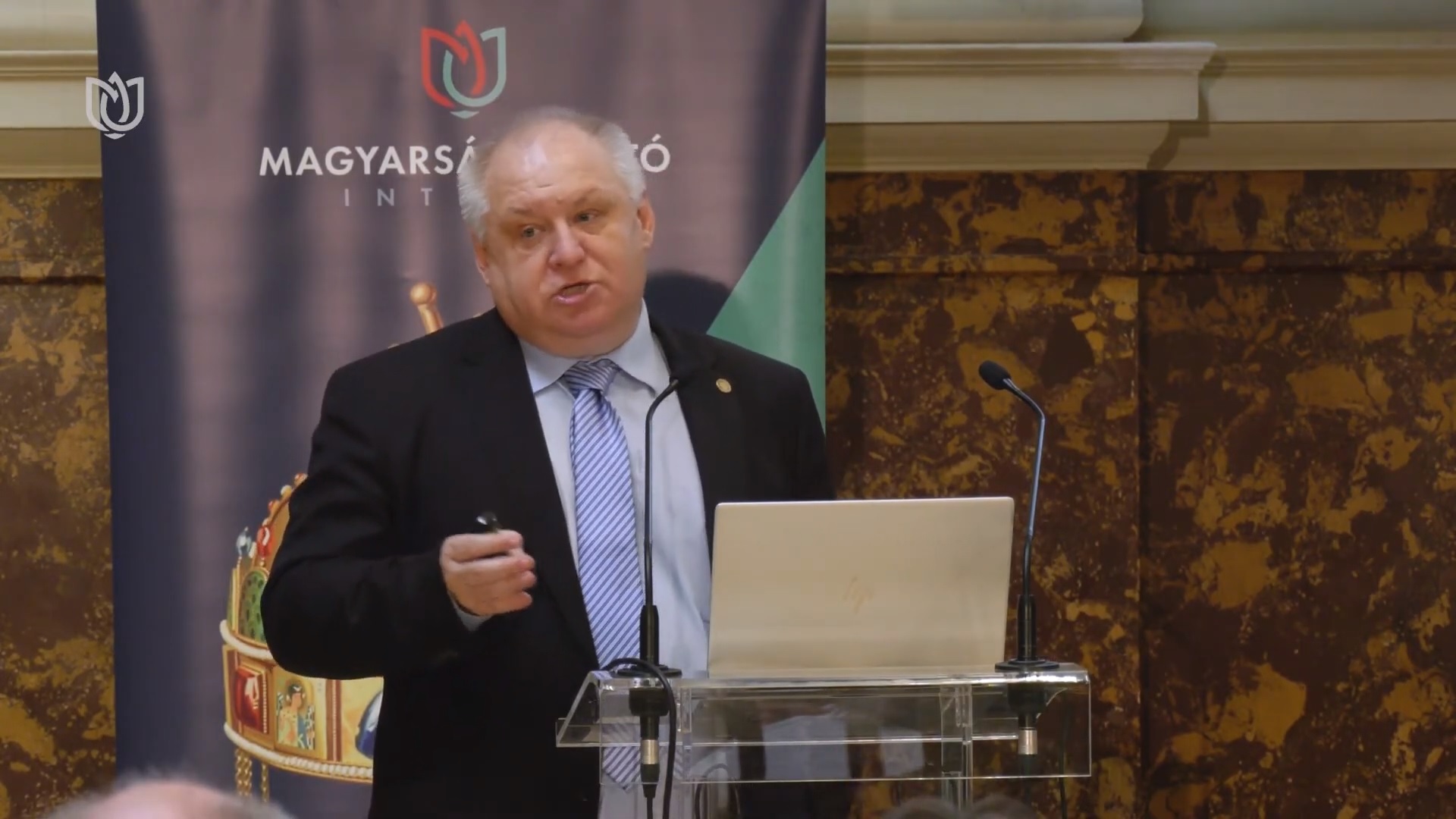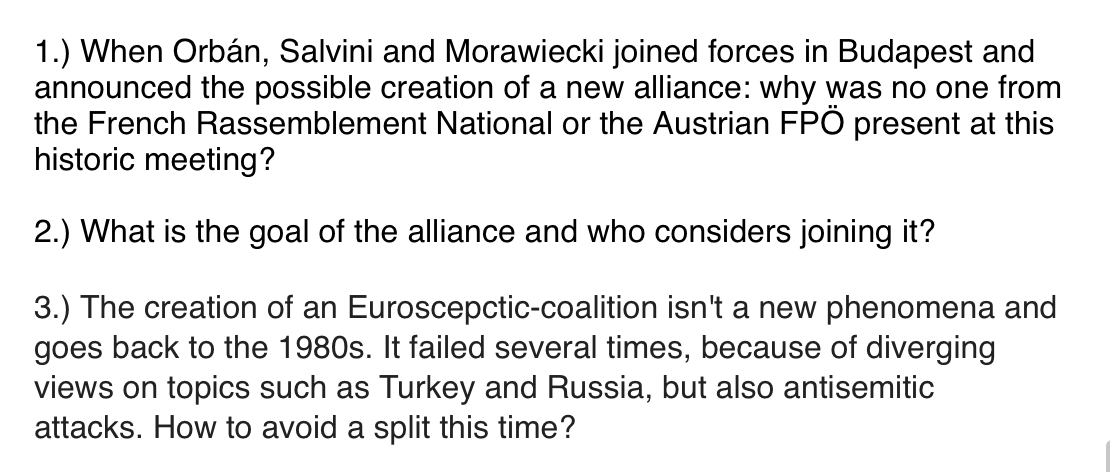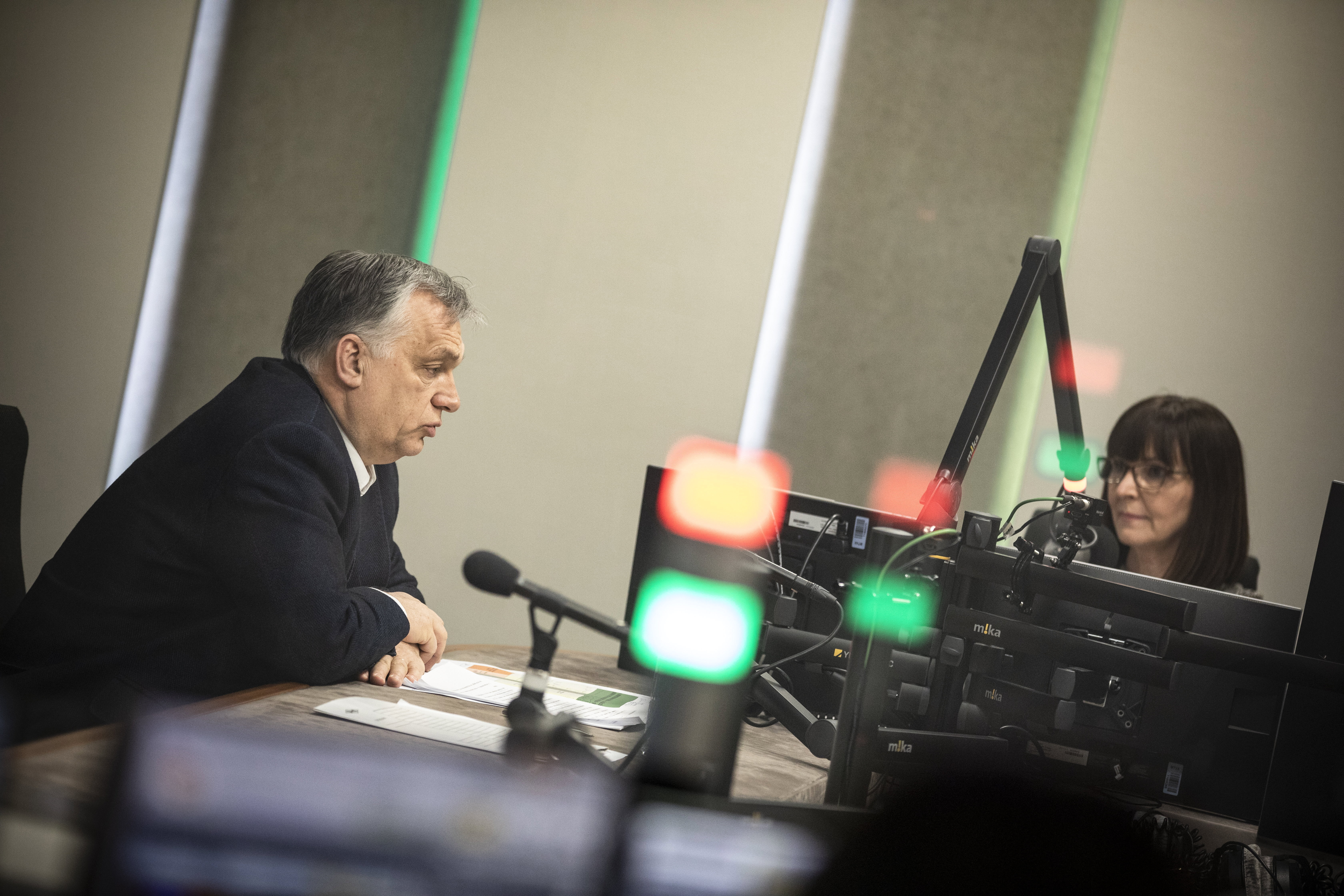Hungarian state television attacks Austrian journalist for asking "provocative questions"
- Stay updated on the latest news from Hungary by signing up for the free InsightHungary newsletter:
A diplomatic conflict arose between Hungary and neighboring Austria after Hungarian public television aired a three and a half minute report attacking an Austrian journalist for questions she posed to Fidesz representatives in the European Parliament.
The report, which aired Tuesday on taxpayer-funded state television station M1, was titled,
The report refers to Tschinderle as an "amateur journalist" for the "left-liberal press," and displays her name and photograph while drawing attention to previous articles she has written on Hungary's prime minister, Viktor Orbán.
Tschinderle's questions, which the report describes as "judgments and allegations full of preconceived prejudices," dealt with last week's meeting in Budapest between Orbán, former Italian interior minister Matteo Salvini and Polish Prime Minister Mateusz Morawiecki and their efforts to create a new right-wing force on the European level.
Austria's foreign ministry called the television report "unacceptable," saying that asking critical questions is a "core task of the media." Austria's foreign minister contacted his Hungarian counterpart, Péter Szijjártó, who in a Facebook post Thursday rejected Austria's complaints over the report and said Tschinderle was "spreading fake news."
“I see, I hear that there is a lot of excitement in Austria because the Hungarian Television dared to criticize an Austrian journalist...A liberal journalist can go ahead and spread fake news about a country since there is freedom of the press, but if another journalist dares to criticize her...it is an attack on freedom of the press," Szijjártó wrote.
In a tweet, Tschinderle expressed her solidarity with "our colleagues in Budapest and the rest of Hungary who have to face this every day and week."
"I can guarantee you: We will not stop reporting about the decline of democracy in our neighboring country," she wrote.
On Thursday, state television aired a nearly five minute report attacking the "left-liberal" Hungarian press, including 444.hu, for "coming together in defense of the Austrian journalist."
Students file complaint over racist, sexist comments from Szeged professor
Several students at the Szeged University of Sciences have lodged a complaint against a professor for racist, sexist and homophobic comments they say he made during an online lecture in February.
Szeged.hu reports that László Gulyás, a historian and professor at the university, made offensive comments during the first lecture of his course "Migration and Asylum in the 20th Century." According to the four students who filed complaints:
- When one student appeared in the online lecture with an avatar of Győzike, a popular Hungarian Roma television personality, Gulyás said, "Well, I hate Gypsies, but especially Győzike, don't make me look at him."
- Gulyás reportedly commented that "black culture in America is based on rap," and said that "there is no such thing as African civilization. The blacks there were in the jungle not doing sh*t." Gulyás also reportedly made comments about "extremely ugly n*ggers."
- Gulyás reportedly called US president Joe Biden "half stupid," and said of the vice-president: "I don't even remember the woman's name...Kamala Harris. I just call her 'black slut.'"
- Gulyás reportedly said that "inbreeding" in Japan had made Japanese people "degenerate."
- He allegedly commented that he would prefer not to see only male students during the lecture, and that "the ladies could turn on their cameras so at least I'd have something to look at."
- After a break in the lecture, Gulyás reportedly asked whether all the students had rejoined the video conference. One (presumably male) student replied, to which Gulyás said that "as a heterosexual, a male student coming back doesn't excite me."

Gulyás later wrote a statement on the university's internal website, saying he was "outraged" by the students' complaints, which he said "remind us of the worst times of Communism. The young communists did things like this under Stalin and Rákosi."
"As an educator with national, civic, conservative values, I refuse to allow any student to question my value system," Gulyás continued. He encouraged students who "do not agree with conservative values" to drop his course and sign up for one under the "many communist and liberal faculty members who teach at our university."
In mid-March, President János Áder gave Gulyás the Knight's Cross of the Hungarian Order of Merit, one of Hungary's highest state honors, for his historical research and "publications expressing national, civic values."
The rector of the university has initiated an investigation into Gulyás' alleged comments.
Opposition parties react to government's "anti-vaccination" charges
Representatives of six opposition parties released a video Monday encouraging all Hungarians to receive a coronavirus vaccine, a reaction to weeks of accusations by government officials that the opposition is conducting an "anti-vaccination" campaign.
The video came days after Prime Minister Viktor Orbán accused Hungary's "left wing" of attempting to dissuade Hungarians from vaccinations, a move he said is meant to deliberately increase the number of Covid-19 deaths and "weaken the government."
"Those who they convince not to get vaccinated can die, and they are dying, those who listen to the left wing," Orbán said during a Friday radio interview.
Orbán's press secretary, István Hollik, echoed Orbán's claims that Hungary's Covid-19 death rate, currently the worst in the world per capita, was attributable to the opposition parties. Hollik announced that Fidesz had initiated an information campaign to convince Hungarians "not to believe the anti-vaccination left wing," and claimed that the opposition's anti-vaccination policies were "costing lives."
Numerous government officials have for weeks attempted to lay responsibility for Hungary's word-leading infections and deaths at the feet of political opponents, claiming that opposition parties were actively dissuading people from getting vaccinated.
In January, the opposition party Democratic Coalition indeed started a petition against vaccines that had not been approved by the European Medicines Agency, the EU's drug regulator. This came as the government circumvented its own drug regulator and announced that any vaccine that has been administered to at least 1 million people in any country in the world could be approved in Hungary without being examined by authorities.
Orbán announces lifting of restrictions after 2.5 million vaccinated
Several pandemic restrictions were lifted this week after Prime Minister Viktor Orbán made an unexpected announcement in a Facebook video Tuesday.
In the video, Orbán announced that 2.5 million people in Hungary had received at least a first dose of a coronavirus vaccine, a threshold earlier set by the government for when certain lockdown restrictions could be lifted.
As of Wednesday, businesses and services were allowed to reopen after being closed for a month, and the start of an overnight curfew was pushed from 8 p.m. to 10 p.m. Opening hours for stores were also extended to 9:30 p.m.
Some doctors and public health experts expressed concern that the opening, which came as Hungary continues to have the highest per capita death rate in the world, had come too early. Speaking to ATV on Tuesday, virologist Miklós Rusvai said that while the number of new infections and hospitalizations were appearing to stagnate, signaling a peak of the pandemic's deadly third wave, basing the reopening on the number of administered vaccinations was risky.
The Hungarian Chamber of Doctors released a statement Wednesday saying the lifting of restrictions was “too early” and was "based on no professional health or epidemiological grounds.”
The Chamber said the high number of deaths, hospitalizations and patients on ventilators showed that the third wave was plateauing "at best," and that a “reassuring, proven level of protection" could only be achieved one week after receiving a second dose of a vaccine.
Hungary's vaccination program has given it the second-highest vaccination rate in the European Union. As of Friday, nearly 2.7 million people had received at least a first dose of a vaccine, around 27% of the population. Slightly more than 1.1 million people have received a second vaccine dose.
In an online press briefing on Thursday, the prime minister's chief of staff, Gergely Gulyás, said that a new round of reopening measures would come after 3 million people had received a first vaccine dose, which he said could occur within a week.



